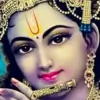Originally posted by: abhijitbasu
TAILPIECE: Just in case this forum is still active, I may add a qualifier to my post above. On a rethink, Yudhishthira's words about the escape plan from the jatugrha might be explained in a less negative light. Bhartrhari categorises people in four types: Those who sacrifice their own interest for others' benefit are the righteous persons. Those who make efforts to help others only if there is no conflict of interest are the general kind. Those who harm others for their own benefit are the human-demons. And those who harm others for no reason are of the even worse kind.
Going by this model, the Pandavas' action could be attributed to the second kind of behaviour, because had they tried to save the inebriated Nishadas, Duryodhana could have learnt of their escape from them, and sent his killers after the Pandavas. This would have put paid to their own life-or-death interest of staying incognito for some time as per Vidura's sensible advice. As a savant friend tells me, perhaps the best way for us to judge the event is to ask ourselves the question: 'What I would have done in that situation?' So, we should perhaps not be unduly harsh on Yudhishthira on that score.
Sir
the bold i didnt understand that part .Why would pandavas try to save the Nishadas wasn't it their plan to kill them in the first place?From what i understand in CE is that Yudhishtir says we need to leave six bodies here and then kunti plans this huge feast in which the Nishada come and they become drunk and after which they fall asleep when pandavas burn lakshagarah.So its not like pandvas choose not to save them it was more like a plan.Please let me know if there is something wrong in my understanding of this incident
Regarding Yudhishtir personally i would say that the above act i don't hold against him he did what he thought was the best way to save his family and i understand that it was a very human act .Actually personally what i feel is that people generally view yudhishtir as a saint who was always too good and too forgiving .Yes he was forgiving but he was not always saintly he was very very human at times and at least for me it makes his character interesting.There are many incidents where he didnt behave like a complete saint his ambitions are reflected
1)Lakshgarah incident has already been discussed even before the incident how he explains to Bhima what they need to do shows his political astuteness
2)Then his disappointment towards his mother when he comes to know she sent Bhima to Baksura to save a family.He doesn't approve of this act because he knows how important Bhima is if he wants to win back his kingdom
3)Again he shows his intelligence when he realized that all brother's are attracted to Draupadi and it may cause a problem for them in future hence they should all marry her
4)In vana parva when he admits that he continued to play in order to rob Duryodhan of HP
5)His message to Indradev regarding Karna after which Indra dev goes to ask Karna for his Kavach Kundal daan which again shows his strategic mind he very well realized that karna could be a roadblock in his victory
6)The when he intelligently asks Bhishma and rest of the elder's a way to defeat them via asking for a blessing right before the war
7)The again when he appoints shalya to demotivate Karna .An example of psychological warfare in dwapar yug
i feel other than krishna ji the only pandav who uses his mind the most in formulating strategies for their victory was Yudhishtir so all his above actions i do understand even appreciate but my issue with Yudhishtir's characterization comes when people view him more as boring character who was very saintly and could never think ill of others which isn't true .He was neither boring nor a saint and even he has many interesting layers to him.or example yes he was definitely ambitious and wanted to be king but he also knew when to control his ambition .He never wanted so much of destruction hence the peace proposal.
But since the general opinion of him is that of a saintly person which yes he was to some extend but then his very human actions often get ignored or swept under the rug which atleast for me is the most interesting thing about him
Edited by Sabhayata - 11 years ago





























